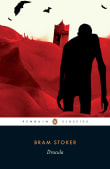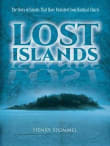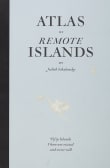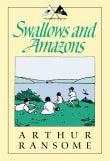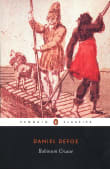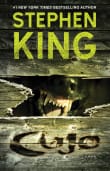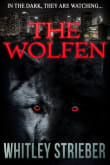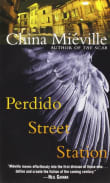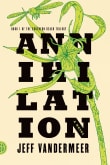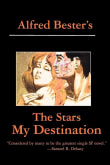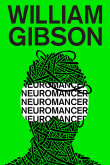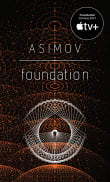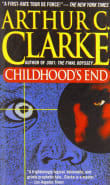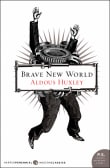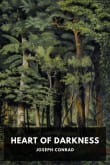The Island of Doctor Moreau
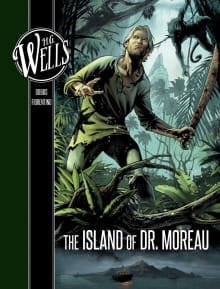
Book description
The Island of Doctor Moreau has inspired countless homages in literature, film and television.
Why read it?
8 authors picked The Island of Doctor Moreau as one of their favorite books. Why do they recommend it?

I loved this book because it was so gripping. It made me long to be a writer. Although it was written over a hundred years ago, the dark story spoke directly to me.
I read it at the darkest time in my life. I was fourteen, and my alcoholic father had become a terrifying force in our home, just like Dr. Moreau, who rules his island with vicious power. I had never dreamed that a crazed leader could break an entire population, but the idea seems shockingly prescient now.
The book made me realize that I, too, could escape from…
From Kate's list on the scariest books set on tiny claustrophobic islands.

Wells is one of the great early masters of science fiction, creator of The Time Machine and The War of the Worlds, but with Moreau he was also one of the masters of what David Cronenberg fans know as body horror—the gross, startling, and menacing intermingling of the human body with exterior elements.
In this case, pumas, pigs, you name it. With characters like Ape-Man and Sloth-Man, there is a definitely campiness here, but never enough to distract from the fact that it’s deeply, resonantly disturbing.
From Ben's list on malevolent beasts.

I first read The Island of Dr. Moreau many years ago and it struck me that this could really happen.
A cautionary tale of a Mad scientist who operates on humans and animals with the end result of creating transspecies with human-like characteristics. Although written at a time when we didn’t know how to manipulate human and animal genomes, the novel presents a chilling story of what can happen when scientific knowledge outpaces common sense.
We don’t know what we don’t know.
From Jack's list on that capture the not-so-distant future.
If you love The Island of Doctor Moreau...

This book gives a great example of what happens when humans try too hard to tinker with nature. Of course, sometimes science does need to tinker with nature for the greater good of humanity and scientific progress but this story is disturbing on many levels because it touches upon various aspects of human responsibility with regard to nature. Mainly on the philosophical and moral levels relating to how much power humans should ultimately wield over nature and what benefits or drawbacks are derived from such control. Obviously, humans can alter nature at a cost but what happens when we do,…
From Gordon's list on scientific research on humans or animals.

Often in the shadow of his other sci-fi classics like The War of the Worlds and The Time Machine, this one always stood out to me as a creepy and unsettling exploration of the “uplift” subgenre... far before anyone else was doing it. Moreau’s island is nightmare-fuel, but it’s so much more than a zoo of oddities. His uplifted animals struggle to make sense of their world, and their attempts at recreating human society is both a commentary on us but also on how tenuous human society is in the face of the “inner beast”. In a way, it…
From Brian's list on classic sci-fi recommended by a sci-fi novelist.

Animal/human hybridisation is ripe for gothic sci-fi stories. Whether the sentient flora of Annihilation, the insectoid-human khepri of Perdido Street Station, or the brutal stitching together of human and animal in The Island of Doctor Moreau—each offers its own shade of terror, grotesque beauty, and ethical complications. Don’t let the clusterf*ck of its movie adaptation dissuade you; H.G. Wells’ classic is a beautiful exploration of the grotesque and terrifying—a darker, twistier version of Orwell’s allegory, Animal Farm, where humanised animals tell the story of mankind’s descent from humanity.
From Mikhaeyla's list on gothic sci-fi that explore the darkness of mankind.
If you love H.G. Wells...

The reader is introduced to a collection of monsters, half-man/half-animal, who are abominations of nature created by the titular Dr. Moreau. He’s a demented scientist who wishes to exert his dominance over nature by perverting it. Wells makes us feel empathy for the monsters who suffer greatly at the hands of their creator. The book eventually makes us question who the true monster is—man or beast?
From Lee's list on that will make you afraid of the dark.

I recently reread The Island of Doctor Moreau and I’d forgotten how clever it is. Written in 1896 it looks forward to modern debates on genetics and what makes us human, all the while radically questioning the borderline between other species and us. All these ideas roam freely in a compulsive horror story, as freely as the island’s many bizarre beasts.
From Alastair's list on the lure and mystery of islands.
If you love The Island of Doctor Moreau...
Want books like The Island of Doctor Moreau?
Our community of 12,000+ authors has personally recommended 100 books like The Island of Doctor Moreau.



